Debate suspended, govt. discusses amendments
The Serbian parliament started a debate on a draft resolution on Kosovo around 11:30 CET on Saturday.
Saturday, 12.01.2013.
10:53

BELGRADE The Serbian parliament started a debate on a draft resolution on Kosovo around 11:30 CET on Saturday. The debate was suspended around 13:00 so the government could discuss amendments that have been proposed. Debate suspended, govt. discusses amendments President Tomislav Nikolic also attended the parliamentary debate and Prime Minister Ivica Dacic addressed the MPs before recess. The most problematic amendment was proposed by the Democratic Party (DS). The DS wants the original text of the Serbian president's platform on Kosovo to become an integral part of the resolution. Serbian parliament Speaker Nebojsa Stefanovic said that the government wanted to see as broad unity as possible in supporting the platform and was therefore was willing to accept the DS amendment. “The government has already shown will to work with the opposition parties on the adoption of the text,” he added. However, Dacic said that the DS’ amendment would not be accepted. The Democratic Party of Serbia (DSS) said that it would not vote for the resolution since none of its eight amendments had been adopted. The Liberal Democratic Party (LDP) announced earlier that it would not support the draft resolution. The Serbian government convened around 15:00 CET to discuss the proposed amendments. The parliamentary debate is expected to continue after the government session. Representatives of Kosovo Serbs also do not support the resolution, according to some sources. The content of the platform will not be made public. Parliament’s Committee on Kosovo discussed the resolution on Thursday. The opposition criticized the document, claiming it was contradictory and unconstitutional. However, the Committee decided to recommend the MPs to adopt the draft. Parliament Speaker Nebojsa Stefanovic said earlier that the draft and amendments would be jointly discussed and that the MPs should vote on the document the same day. President’s advisor Marko Djuric has assessed that the resolution will pave the government’s path in further negotiations with Pristina and ensure that all future agreements are in accordance with it. “The technical and political dialogue with Pristina should be aimed at creating a community of Serb municipalities in Kosovo that would be a guarantee of survival of Serbs in Kosovo. There is no political or human reason not to encourage and support the government in achieving the mentioned goals. Solutions that will be agreed need to be fully harmonized with the resolution’s principles,” he explained. EU special envoy in Kosovo Samuel Zbogar has assessed that the resolution on Kosovo “has no value” and that it will not affect the Belgrade-Pristina dialogue. (Tanjug) “Govt., president want to find solution” Dacic said that the Serbian government and president were not just proposing a text of the resolution and platform on Kosovo but also wanted a solution to the Kosovo issue to be found. “The Saturday meeting should analyze the situation in Kosovo objectively,” said the PM, stressing that Serbia had been discussing various resolutions and declarations for years, while ever since 1990, a process had been ongoing of strengthening independence and increasing pressure on the Serbs in Kosovo and there had been no returns of Serbs to their homes and no solving of the problem of the missing. “The sovereignty of Serbia in Kosovo and Metohija is almost a dead letter now. Today, we are seeking support for a policy that should break the lullaby that says it is enough to hide behind resolutions and see the Kosovo problem solved,” he said at the meeting discussing the draft resolution on Kosovo. “Citizens expect answers to questions, a responsible approach to the discussion, no arguments between political parties and if possible, no competition in accusations about who is to blame for the current situation,” Dacic explained. He recalled 2012 as the year marking 100 years since the liberation of Kosovo from the Turks, pointing out that we had a difficult situation there now as the territorial integrity and sovereignty and national and state interests of Serbia were in jeopardy. “Kosovo is governed by commanders of units with whom we were at war (during the 1998-1999 Kosovo conflict), and today we are engaged in talks with them. Unfortunately, this is a reality,” stressed the prime minister, adding that the key question was what could be done to change the reality on the ground. “Kosovo is not a simple topic,” he said, quoting writer Jovan Skerlic's line about how “every stone in Kosovo is a memory of a painful old wound.” “Regardless of whether Kosovo is part of Serbia or not - as even at the time of the Turkish occupation, the attitude of the Serbian people towards Kosovo did not change - it is a supreme thought, regardless of who has sovereignty there today. Kosovo is an archetype of Serbia's, a topic about the Serbian origins, migrations and divisions,” said Dacic. “The situation in Kosovo is very difficult and the purpose of the meeting is not to discuss these few pages containing the text of the resolution but rather to see if we are able to view the current situation, the foreign affairs position of Serbia and opportunities to find a proper solution objectively,” the PM noted. “Whether we will be able pursue a feasible, realistic policy or just adopt yet another resolution depends on the approach we take,” Dacic added. Ivica Dacic (Beta) B92 Beta Tanjug
Debate suspended, govt. discusses amendments
President Tomislav Nikolić also attended the parliamentary debate and Prime Minister Ivica Dačić addressed the MPs before recess.The most problematic amendment was proposed by the Democratic Party (DS). The DS wants the original text of the Serbian president's platform on Kosovo to become an integral part of the resolution.
Serbian parliament Speaker Nebojša Stefanović said that the government wanted to see as broad unity as possible in supporting the platform and was therefore was willing to accept the DS amendment.
“The government has already shown will to work with the opposition parties on the adoption of the text,” he added.
However, Dačić said that the DS’ amendment would not be accepted.
The Democratic Party of Serbia (DSS) said that it would not vote for the resolution since none of its eight amendments had been adopted.
The Liberal Democratic Party (LDP) announced earlier that it would not support the draft resolution.
The Serbian government convened around 15:00 CET to discuss the proposed amendments. The parliamentary debate is expected to continue after the government session.
Representatives of Kosovo Serbs also do not support the resolution, according to some sources.
The content of the platform will not be made public.
Parliament’s Committee on Kosovo discussed the resolution on Thursday. The opposition criticized the document, claiming it was contradictory and unconstitutional. However, the Committee decided to recommend the MPs to adopt the draft.
Parliament Speaker Nebojša Stefanović said earlier that the draft and amendments would be jointly discussed and that the MPs should vote on the document the same day.
President’s advisor Marko Đurić has assessed that the resolution will pave the government’s path in further negotiations with Priština and ensure that all future agreements are in accordance with it.
“The technical and political dialogue with Priština should be aimed at creating a community of Serb municipalities in Kosovo that would be a guarantee of survival of Serbs in Kosovo. There is no political or human reason not to encourage and support the government in achieving the mentioned goals. Solutions that will be agreed need to be fully harmonized with the resolution’s principles,” he explained.
EU special envoy in Kosovo Samuel Žbogar has assessed that the resolution on Kosovo “has no value” and that it will not affect the Belgrade-Priština dialogue.
“Govt., president want to find solution”

“The Saturday meeting should analyze the situation in Kosovo objectively,” said the PM, stressing that Serbia had been discussing various resolutions and declarations for years, while ever since 1990, a process had been ongoing of strengthening independence and increasing pressure on the Serbs in Kosovo and there had been no returns of Serbs to their homes and no solving of the problem of the missing.
“The sovereignty of Serbia in Kosovo and Metohija is almost a dead letter now. Today, we are seeking support for a policy that should break the lullaby that says it is enough to hide behind resolutions and see the Kosovo problem solved,” he said at the meeting discussing the draft resolution on Kosovo.
“Citizens expect answers to questions, a responsible approach to the discussion, no arguments between political parties and if possible, no competition in accusations about who is to blame for the current situation,” Dačić explained.
He recalled 2012 as the year marking 100 years since the liberation of Kosovo from the Turks, pointing out that we had a difficult situation there now as the territorial integrity and sovereignty and national and state interests of Serbia were in jeopardy.
“Kosovo is governed by commanders of units with whom we were at war (during the 1998-1999 Kosovo conflict), and today we are engaged in talks with them. Unfortunately, this is a reality,” stressed the prime minister, adding that the key question was what could be done to change the reality on the ground.
“Kosovo is not a simple topic,” he said, quoting writer Jovan Skerlić's line about how “every stone in Kosovo is a memory of a painful old wound.”
“Regardless of whether Kosovo is part of Serbia or not - as even at the time of the Turkish occupation, the attitude of the Serbian people towards Kosovo did not change - it is a supreme thought, regardless of who has sovereignty there today. Kosovo is an archetype of Serbia's, a topic about the Serbian origins, migrations and divisions,” said Dačić.
“The situation in Kosovo is very difficult and the purpose of the meeting is not to discuss these few pages containing the text of the resolution but rather to see if we are able to view the current situation, the foreign affairs position of Serbia and opportunities to find a proper solution objectively,” the PM noted.
“Whether we will be able pursue a feasible, realistic policy or just adopt yet another resolution depends on the approach we take,” Dačić added.










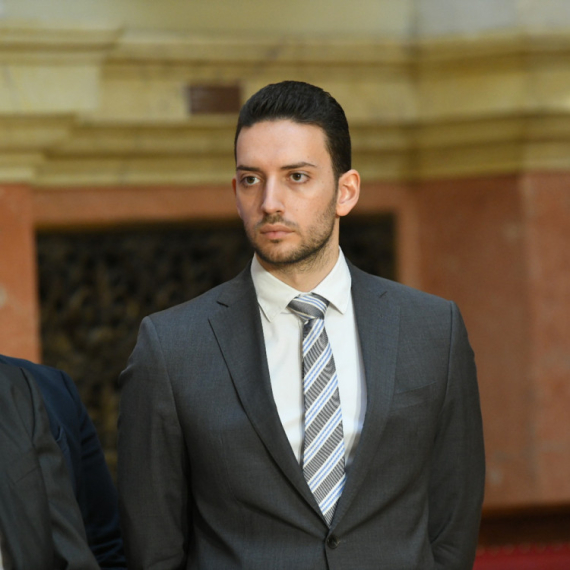

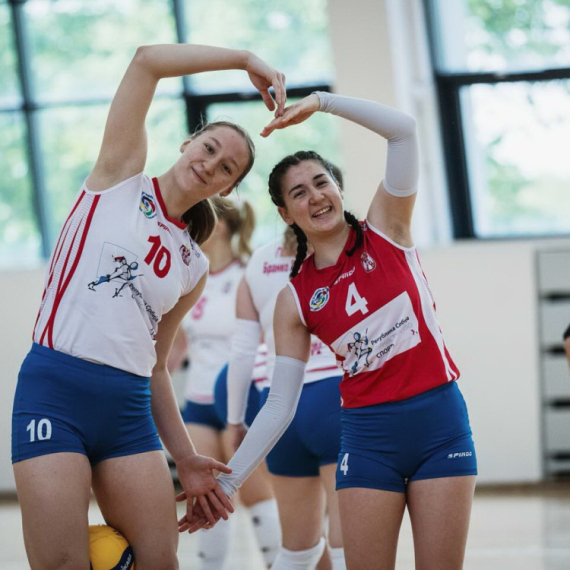

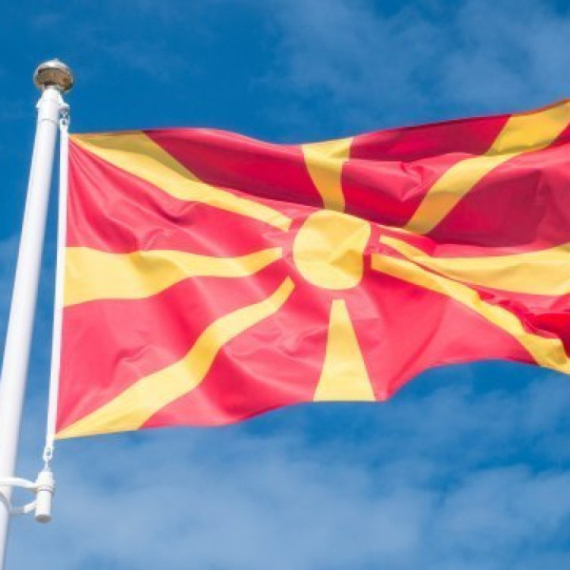
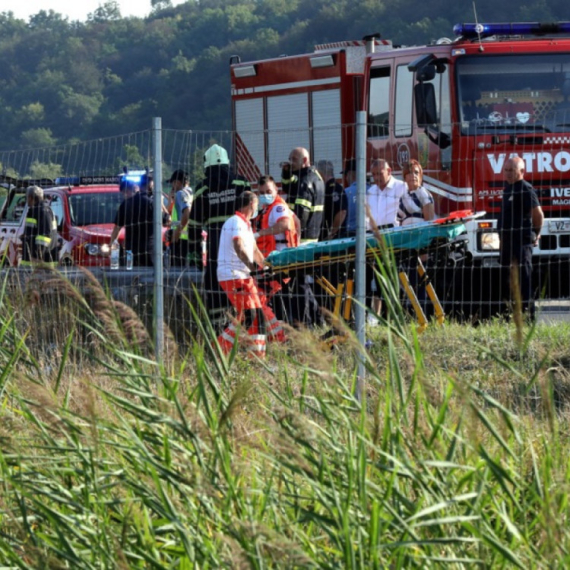
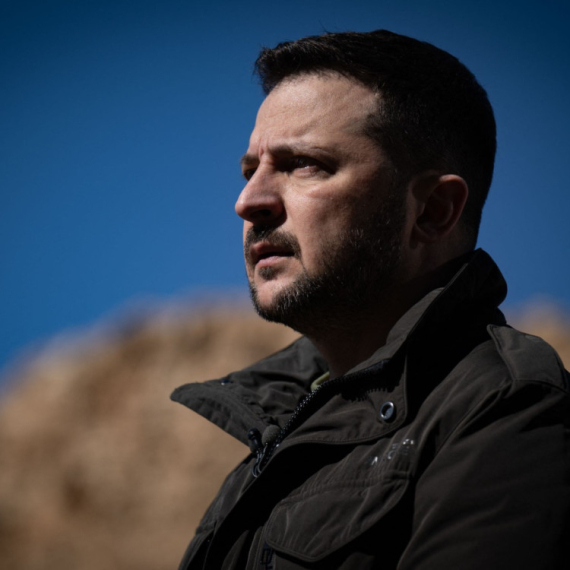
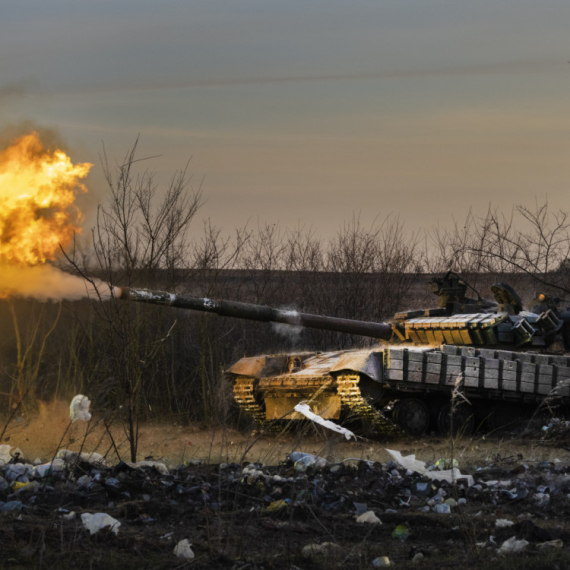








































Komentari 7
Pogledaj komentare